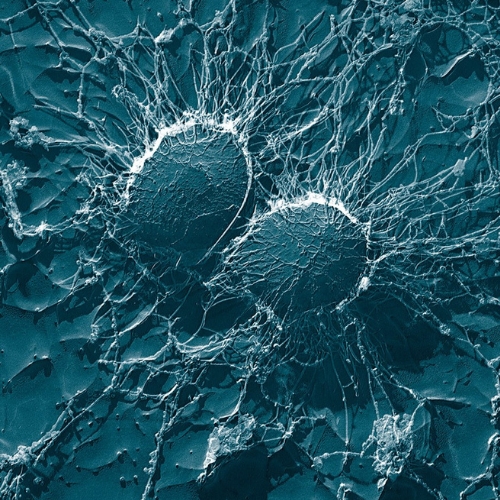Ageing has always fascinated both scientists and storytellers. Across cultures, people have wondered why some individuals thrive well into their nineties while others struggle with frailty decades earlier. The question is not just about lifespan but about healthspan — the quality of those later years. Recent studies are revealing that one of the most important players in this story is not visible to the naked eye. It lives within us, shaping our health in subtle but powerful ways. We are speaking of the gut microbiota, the vast ecosystem of microbes inside the human digestive tract.
Why the gut matters
For years, scientists have described the gut microbiota as a “metabolic organ”. It helps digest food, regulates immune responses, and even influences mental health. With ageing populations around the world, understanding its role in maintaining strength and independence in older age has never been more important. The World Health Organisation defines healthy ageing as preserving physical function and emotional well-being for as long as possible. Since microbes are involved in nutrient processing, inflammation control, and energy balance, they have become central to studies on longevity.
Gut health and longevity
In a recent investigation from Peking University People’s Hospital, researchers analysed the gut microbiota of adults aged 60 to 98. The participants included a group of nonagenarians, providing a unique opportunity to examine the microbiota of those who had already achieved remarkable longevity. Surprisingly, the diversity of their gut bacteria was comparable to younger elderly individuals. The difference lay not in how many species lived in their intestines, but in which species dominated. Long-lived adults carried more Akkermansia and Bifidobacterium, both associated with robust metabolism and stronger immunity.
Physical function connection
Longevity means little if it comes with poor quality of life. To address this, the study examined physical performance using grip strength, gait speed, and comprehensive assessments of intrinsic capacity. The results revealed striking links between microbial composition and physical vitality. Higher grip strength correlated with bacteria such as Roseburia hominis and Eubacterium rectale, known producers of short-chain fatty acids that nourish gut cells and reduce systemic inflammation. These findings suggest that maintaining strength in older age is not solely about exercise, but may also depend on microbial partners inside the gut.
Nutrition and mood influences
Diet and emotional state also appeared as key factors in the gut–ageing puzzle. Participants who consumed 300–500 millilitres of milk daily tended to show more beneficial bacterial profiles and reduced frailty risk. Interestingly, emotional health also left microbial traces. Higher anxiety scores corresponded with specific changes in gut composition, suggesting that mood and microbes interact in ways that can affect resilience. This supports the growing recognition of the gut–brain axis, a two-way communication system between intestinal microbes and mental health.
Beneficial versus harmful microbes
Not all bacteria support longevity. Comparisons between strong nonagenarians and frail younger elders revealed a pattern. Those who preserved physical function well into their nineties carried higher levels of bacteria such as Bacteroides plebeius and Bacteroides eggerthii, both linked to improved intestinal health and muscle preservation. By contrast, frailer individuals often harboured more Escherichia coli, a microbe better known for causing infections. This highlights the delicate balance within the gut: supportive bacteria help sustain strength, while opportunistic microbes may hasten decline.
Metabolic pathways revealed
The research went beyond identifying microbes to exploring what they do. Beneficial bacteria in long-lived adults were linked with enhanced pathways for synthesising amino acids like valine, threonine, and isoleucine. These building blocks play essential roles in muscle maintenance, tissue repair, and overall metabolic health. Such findings suggest that microbes contribute to ageing not only by their presence, but by providing metabolic fuel that sustains body systems under the strain of time.
Early warning from the gut
One of the most compelling findings was that changes in gut microbiota often appeared before traditional clinical signs of decline. In practice, this means that shifts in microbial composition might predict frailty earlier than standard blood tests or physical assessments. If future studies confirm this, gut microbiota could become a powerful biomarker for healthy ageing. Doctors might one day monitor gut profiles alongside cholesterol or blood pressure, offering earlier interventions to preserve independence in older adults.
Looking to the future
Of course, these discoveries come with caveats. The study was observational and involved a limited number of participants. While correlations are strong, causation remains unclear. Do microbes actively protect against frailty, or do healthier lifestyles simply nurture different microbial communities? Larger and longer studies will be required to untangle these questions. Still, the emerging picture is compelling: the gut microbiota appears to play a central role in how we age, shaping both physical strength and emotional well-being.
A new marker of healthy ageing
In conclusion, the evidence suggests that longevity is not just written in our genes but is also influenced by our microbial inhabitants. The presence of health-promoting bacteria such as Akkermansia muciniphila, the production of key amino acids, and the subtle interplay between diet, emotion, and microbial balance all appear to contribute to ageing well. As researchers continue to uncover the secrets of these hidden allies, one thing grows clear: the path to a long, healthy life may run straight through the gut.
The study is published in the journal Microorganisms. It was led by researchers from Peking University.







